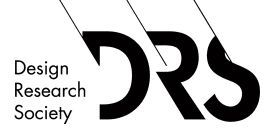contributions
Prototyping a Micro-pluriverse: Performed Cosmologies to Decolonize Augmented Reality
SWEIDAN Selwa
PhD candidate, Interdisciplinary Media Art and Practices, Cinematic School of the Arts, University of Southern California
ESCOBEDO SIBRIAN Jessica
Independent Community-Centered Designer and Strategist
Presentation
Abstract
How do we apply theories of decolonization to an emerging technology such as augmented reality (AR)? We share an open syllabus and explain how our co-creative pilot laboratory contributes to efforts in decolonizing augmented reality through embodied prototyping, and leads to designing pluriversality in AR and “augment” de-centered narratives. Our initial methods included facilitating reading discussions and affinity mapping (to transpose theories into action). “Thinking-feeling” (Escobar, 2015) and “power-geometries” (Massey, 1991) became a means to engage with our own mental models and constructs, as they relate to colonization. This led us to build a series of prompts organized into a “Cosmology Toolkit” (Escobedo, Kris & Sweidan, 2020). We conducted field research in our local geography and we followed “Lynching in the West: Los Angeles Downtown Walking Tour” (Gonzalez-Day, 2006), as a means to critically engage with space and address historic psychogeographies. Using TorchAR (a free, proprietary AR design tool), these performed narratives were recorded as videos on smartphones and layered in situ, to prototype a micro-pluriverse.
decolonizing augmented reality; pluriverse design; embodied prototyping; open syllabus
About the Authors
Born in Malta, and of Libyan and European-American heritage, Selwa Sweidan is a designer, educator and researcher. Her work utilizes embodied methodologies to critically probe technological innovation. She has conducted foresight R&D across technology sectors, including future automated air traffic systems, smart homes and olfactory technology for EmbraerX, Intel, Johnson & Johnson, the Japanese Ministry of Science and Technology (MEXT), McKinsey Korea and UniLever Japan. Selwa teaches within the fields of computational arts, media design and human computer interaction as a Clinical Assistant Professor of Multimedia Arts at Loyola Marymount University. She has co-curated symposia and group exhibitions including Performative Computation, STACKED Expo, Super Radiance and Clustering. Previously, she was a postgraduate Fellow at ArtCenter College of Design; an Interactive Design Fellow at Fabrica; and was awarded “Best Overall” at the Microsoft Design Expo ’15. Selwa holds a BA from Smith College and an MFA from ArtCenter College of Design. In 2020, she will be entering the doctoral Media Art and Practices program at the University of Southern California.
As a Mexican-born immigrant working in the United States, Jessica Escobedo Sibrian is a multidisciplinary designer interested in liberating the immigrant imagination in virtual spaces through emerging technologies. Having lived for decades as a noncitizen with limited rights to participate in civic discussions, Jessy sees virtual space as an opportunity for public participation, particularly around discussions about the built environment. Her graduate thesis work, PLANNAR, is a mobile AR app designed to make AR an accessible medium for long-term, low-income immigrants in the co-visioning urban planning process to express their desires for the future. She has exhibited her AR work at Refactor Camp 2019, APF Futuresfest 2019, UCLA Luskin School of Public Affairs, and Primer Conference 2018-2019. Jessy’s professional work aspires to anticipate near-future implications of emerging technologies through prototyping accessible user experiences, community platforms, and co-creation tools. She’s worked with clients such as Acumen, Sidewalk Labs, IDEO CoLab, Mayor’s Office at the City of Los Angeles, and Autodesk. She holds an MFA from ArtCenter College of Design and a BS in Architectural Studies from the University of Southern California.


